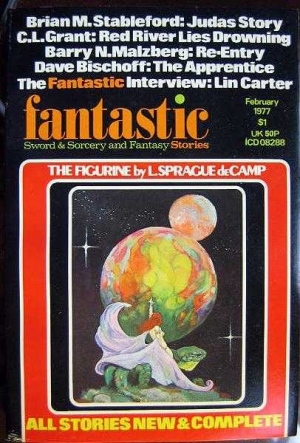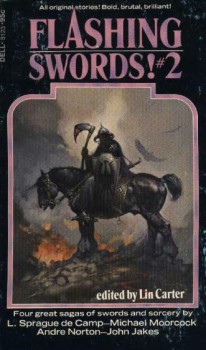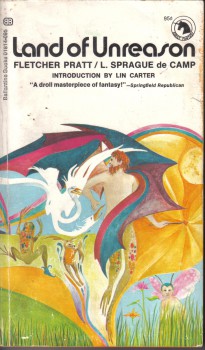Birthday Reviews: L. Sprague de Camp’s “The Figurine”

L. (Lyon) Sprague de Camp was born on November 27, 1907 and died on November 6, 2000.
De Camp won his only Hugo Award in 1997 for his non-fiction book Time & Chance: An Autobiography. He also won the International Fantasy Award for the non-fiction book Lands Beyond, written with Willy Ley and won the British Fantasy Award for The Fallible Fiend. In 1996 he was recognized with the first Sidewise Award for Lifetime Achievement and in 2003 received a Southeastern SF Life Achievement Award. He was named a Grand Master of Fantasy with a Gandalf Award in 1976 and received a Forry Award in 1977. In 1979 SFWA named him a Grand Master and in 1984 he received a Life Achievement World Fantasy Award. H was inducted into the First Fantasy Hall of Fame in 1989 and, along with his wife Catherine Crook de Camp, earned a Gallun Award in 1993. SFRA presented him with a Pilgrim Award for lifetime contribution to SF and F scholarship in 1998. De Camp was the author Guest of Honor at Tricon, the 24th World Science Fiction Convention held in Cleveland in 1966.
“The Figurine” was first published in the February 1977 issue of Fantastic, edited by Ted White. De Camp included it in his 1980 collection The Purple Pterodactyls, which was translated into German in 1982 by Thomas Schlück. The story has not, otherwise, seen print.
A trip to Guatemala in “The Figurine” results in Willy Newbury returning home with a small statue of a god that he places in his office. His children begin to joke that the god is ruining the television reception and they jokingly give the god a sacrifice of some plastic flowers, which clears it up. Newbury doesn’t really believe that the statue has magical powers, but he brings it along on a business trip, where he finds himself in the middle of a riot. He jokingly offers to sacrifice a chicken to the statuette in return for escaping unharmed. When he manages to get away from the rioters and gets home, he suddenly finds that things that were working previously aren’t anymore, and the figurine is no longer fixing things for plastic flowers.

